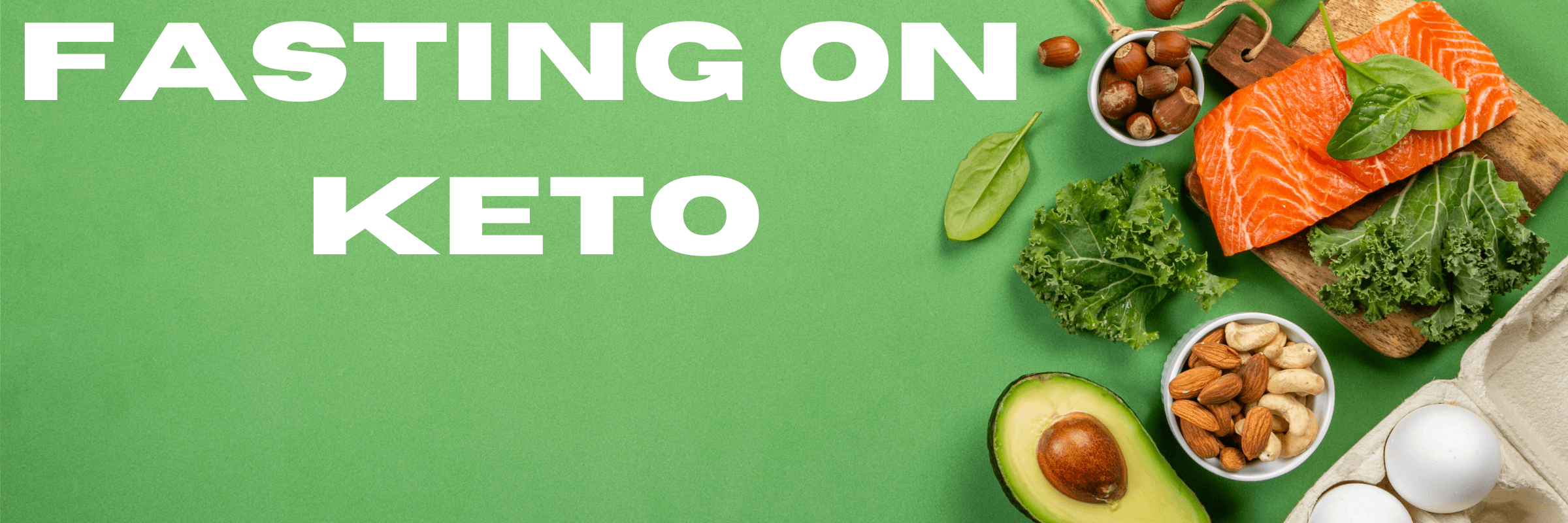
What is Intermittent Fasting On Keto?
Intermittent fasting has gained popularity, especially when combined with the keto diet. This combination can provide significant health benefits and improve overall well-being. Here’s a deeper look into why you should consider intermittent fasting:
Enhances Appetite Control
Following a low-carb, high-fat keto diet, your body adjusts to using fat and ketones for energy. This shift helps you feel fuller for longer periods, reducing the need to eat frequently. Over time, you may naturally eat less, which supports intermittent fasting.
Health Benefits of Intermittent Fasting
Intermittent fasting offers numerous health advantages. Here are some key benefits:
Slows Down Aging: Fasting on keto may decelerate ageing by reducing oxidative stress and inflammation, promoting cellular repair.
Increases Longevity: By altering insulin levels and growth factors, intermittent fasting can potentially extend lifespan.
Promotes Fat Loss: Fasting on keto encourages your body to burn fat for energy, aiding in weight loss.
Reduces Diabetes Risk: It helps stabilise blood sugar levels and improves insulin sensitivity, lowering the risk of type 2 diabetes.
Activates Repair Genes: Ketogenic fasting activates specific genes responsible for cellular repair and maintenance.
Potential Multiple Sclerosis Therapy: Research suggests intermittent fasting on the keto diet could offer therapeutic benefits for multiple sclerosis patients.
Cancer Protection: Fasting may protect against certain cancers and mitigate the side effects of standard cancer treatments.
Understanding Intermittent Fasting
The term “breakfast” literally means breaking the fast you undergo during sleep. Intermittent fasting extends this fasting period to 15-17 hours, which maximises the benefits, especially when following the keto diet. For example, if you finish dinner by 6 PM, you won’t eat again until 8-9 AM the next morning. During the fasting period, you can drink water, which does not break the fast.
Integrating Fasting with Keto
Combining intermittent fasting with a keto lifestyle can enhance weight loss and improve health. If you can fast 2-4 times a week while maintaining a keto diet, you should start seeing significant results. The combined benefits include:
- Increased Lifespan: Regular fasting can contribute to a longer, healthier life.
- Reduced Risk of Chronic Diseases: Fasting on keto lowers the risk of diabetes, cancer, Alzheimer’s, and heart disease.
- Improved Lifestyle: The synergistic effect of keto and intermittent fasting leads to better health and well-being.
Intermittent fasting, especially when paired with the keto diet, offers numerous health benefits. It’s a powerful tool for improving your health, from controlling appetite and promoting fat loss to reducing the risk of chronic diseases and potentially extending lifespan. Now is a great time to try intermittent fasting and experience these benefits for yourself.

Intermittent Fasting schedule
Methods of Intermittent Fasting
Intermittent fasting offers various approaches to fit different lifestyles and preferences including keto. Here are some common methods explained in more detail:
1. 16/8 Fasting Method
In this popular approach, you fast for 16 hours and eat during an 8-hour window. To achieve this, you often skip breakfast. For instance, if you finish dinner by 8 PM, you start eating again at noon the next day. This method effectively provides a substantial fasting period while conveniently fitting into a typical daily schedule.
2. 18/6 and 20/4 Methods
These methods extend the fasting period to 18 or 20 hours, followed by a shorter eating window of 6 or 4 hours.
- 18/6 Method: Fast for 18 hours and eat during the remaining 6 hours. For example, if you finish eating at 7 PM, you start eating again at 1 PM the next day.
- 20/4 Method: Fast for 20 hours and eat during a 4-hour window. For instance, if you finish dinner at 6 PM, you begin eating again at 2 PM the next day.
Both methods intensify fasting benefits, such as enhanced fat-burning and improved metabolic health, especially when combined with the keto diet.
3. 5:2 Diet On Keto
In this method, you eat normally for 5 days a week and significantly reduce calorie intake on the other 2 days. On fasting days, you typically consume about 500-600 calories. This approach proves easier to manage because it requires calorie restriction only twice a week while allowing normal eating on other days.
4. Alternate-Day Fasting On Keto
In this method, you alternate between days of normal eating and days of fasting or severe calorie restriction. On fasting days, you might consume about 20-30% of your usual calorie intake. The next day, you eat without restrictions. This approach can lead to significant weight loss and metabolic benefits, but it may challenge beginners.
5. Eat-Stop-Eat
In this approach, you fast for 24 hours once or twice a week. For example, if you finish dinner at 7 PM on Monday, you don’t eat again until 7 PM on Tuesday. During the fasting period, you drink water, tea, or other non-caloric beverages. This method can effectively promote weight loss and improve metabolic health but requires a full day of fasting, which can be tough for some people.
Intermittent fasting can fit your lifestyle with various methods available. Whether you prefer the 16/8 method, the 5:2 diet, or alternate-day fasting, you can find an approach that works for you. Stay hydrated, choose nutritious foods, and listen to your body as you experiment with fasting.

Tips for Starting Intermittent Fasting
If you’re considering intermittent fasting, follow these tips to ensure a smooth and successful experience:
1. Don’t Force Yourself
Avoid jumping into intermittent fasting prematurely. As you adapt to a keto diet, you’ll naturally feel less hungry. Begin by eliminating snacks between meals, then try skipping a meal if you aren’t very hungry. Ease into fasting without feeling like you’re starving.
2. Start Slowly
Don’t start intermittent fasting immediately after beginning a keto diet. Allow your body time to adjust to using ketones for energy instead of glucose. Wait until your body fully adapts to this new energy source before incorporating fasting. Rushing this process can add unnecessary stress.
3. Know When to Avoid Intermittent Fasting
Certain conditions make intermittent fasting unsuitable. Avoid intermittent fasting if you have:
- Anorexia or Bulimia: Fasting can worsen these eating disorders.
- Type 1 Diabetes: Fasting can cause dangerous blood sugar fluctuations.
Additionally, consult your doctor before starting intermittent fasting if you are:
- Pregnant: Nutritional needs are higher and more specific.
- Type 2 Diabetic: Fasting can affect blood sugar and medication requirements.
- Dealing with Thyroid Issues: Fasting can impact thyroid function and overall hormonal balance.
Adding Depth to Your Keto Fasting Journey
Understanding Fat Adaptation
When you become fat-adapted, you efficiently burn fat for fuel instead of relying on carbohydrates. This adaptation usually takes a few weeks on a keto diet. During this period, energy levels stabilize, and hunger decreases, making intermittent fasting easier and more natural.
Gradual Transition Strategies
- Eliminate Snacks First: Cut out snacks between meals to help your body get used to longer periods without food.
- Extend Meal Intervals: Gradually increase the time between meals. For instance, if you usually eat every 4 hours, try extending it to 5 or 6 hours.
- Skip Meals Occasionally: Once comfortable, begin skipping meals. For example, skip breakfast or dinner, depending on what feels easier.
Monitoring Your Keto Health
Pay attention to how your body responds to these changes. Signs of adjusting well include steady energy levels, reduced cravings, and consistent weight loss. If you experience persistent fatigue, dizziness, or irritability, reconsider your approach and consult a healthcare professional.
Intermittent fasting can offer significant health benefits when done correctly. Start slowly, ensure your body is ready, and know when it’s best to avoid fasting. Listen to your body and consult with your doctor to make the best choices for your health. This mindful approach will help you successfully integrate intermittent fasting into your lifestyle.
More From Best Keto
Best Keto is an Amazon Uk affiliate and earns a small commission from products purchased via links on this page




